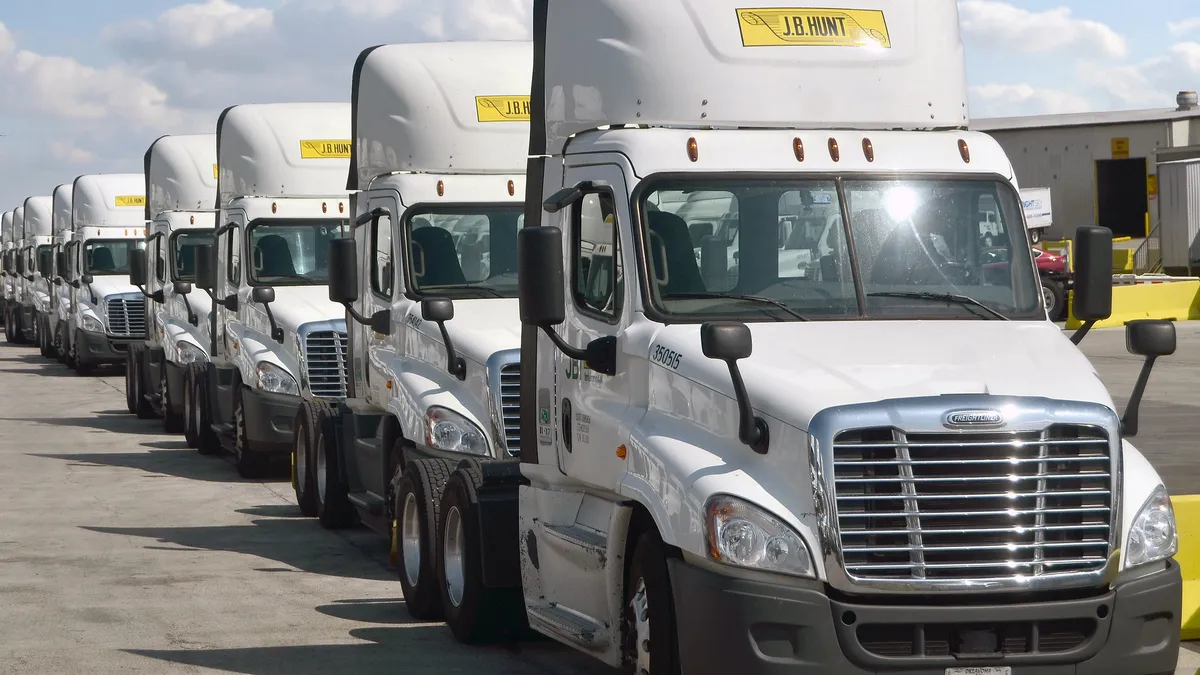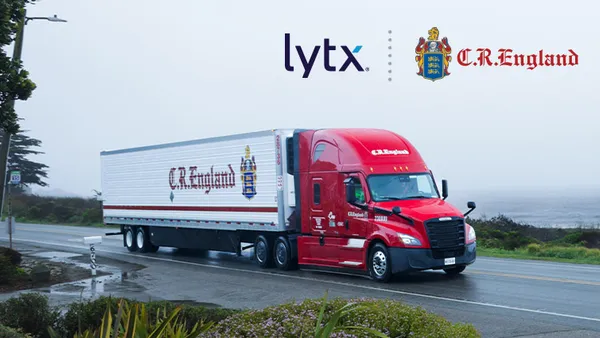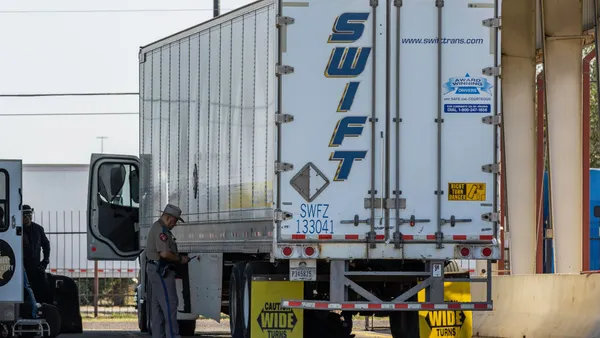Dive Brief:
- Freight moving inefficiently by truck or in the spot market "will be ripe for conversion to intermodal when we also have the full onboarding of our 12,000 new intermodal containers," said Shelley Simpson, J.B. Hunt chief commercial officer and executive vice president of human resources, speaking during the company's Q3 earnings call on Friday.
- The inefficiency Simpson referred to stems in part from congested U.S. ports. Shippers and retailers tell J.B. Hunt they have a "pent-up need to increase" inventories across their systems, J.B. Hunt CEO John Roberts said. He also said customers are having problems on their end with labor, making the congestion double-sided.
- Roberts said he is cautious in his expectations to untangle the bottlenecks at the ports and elsewhere in the supply chain in Q4 and beyond. J.B. Hunt's rail providers show signs of constrained capacity. The supply chain problems worsened in Q3 from Q2, Roberts said, but the addition of new intermodal equipment should help. Darren Field, president of J.B. Hunt Intermodal, said the firm expects to receive the order of 12,000 intermodal containers by early 2022.
Dive Insight:
Roberts was blunt about the problems caused by the clogged California ports and the North American supply chain suffering from tight capacity.
"I would have said at the end of Q2 that I can’t imagine it getting worse," Roberts told investors and analysts. "And you know what, it did."
J.B. Hunt had to restrict capacity to certain customer locations because of demand outstripping resources, Simpson said during an July earnings call on Q2. The situation was in no way unique to J.B. Hunt. FedEx Freight implemented "temporary targeted volume control" in June, restricting shippers in certain situations and declining some loads.
Compounding the problems for J.B. Hunt has been detention of trailing equipment by customers in the intermodal and truck segments. The problem grew into Q2, and J.B. Hunt responded by charging fees for accessories.
J.B. Hunt's plan for the remainder of 2021 is to manage the supply chain problems by acquiring new container equipment and trailers while speeding up loading and unloading. The company had also hoped for faster rail velocity, but Roberts said on Friday its rail providers in Q3 were slower in movement than anticipated.
Labor and recruitment challenges add to the challenges in the smooth flow of goods, and not just for J.B. Hunt.
"It's never been more difficult than it is today to find and attract and retain qualified drivers," said Darren Field, president of J.B. Hunt Intermodal. "It's very, very challenging ... I believe our rail providers are not immune to it and their contract workers inside the terminals, continues to be a challenge for the rail providers."
With all the challenges, J.B. Hunt's bottom line was not impacted negatively. The company posted a 27% increase in Q3 revenues YoY with Q3 operating income up 56% YoY.













